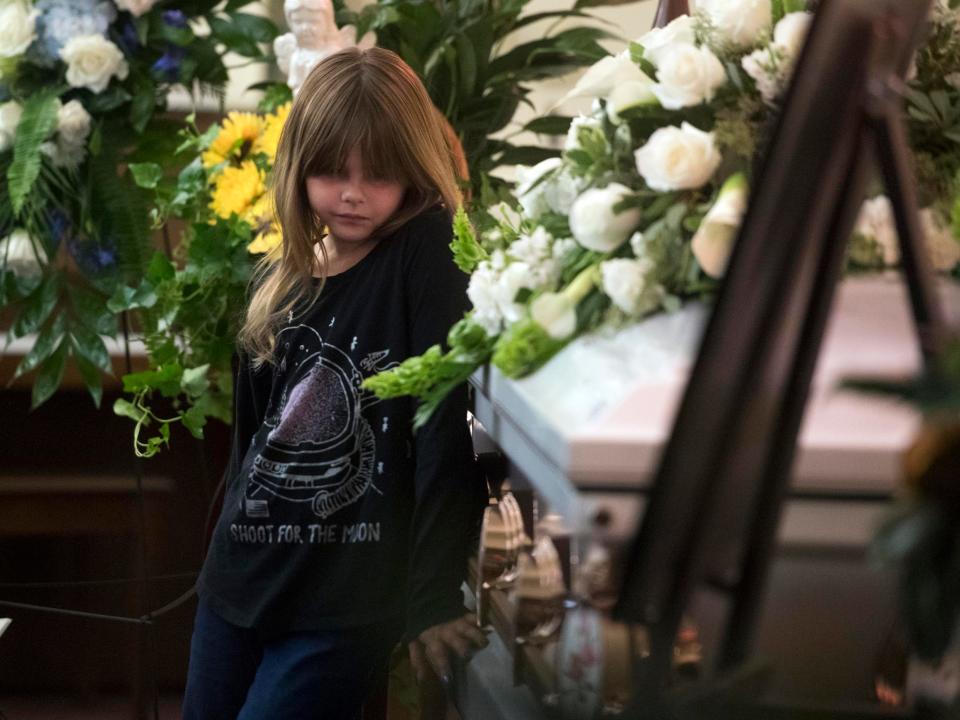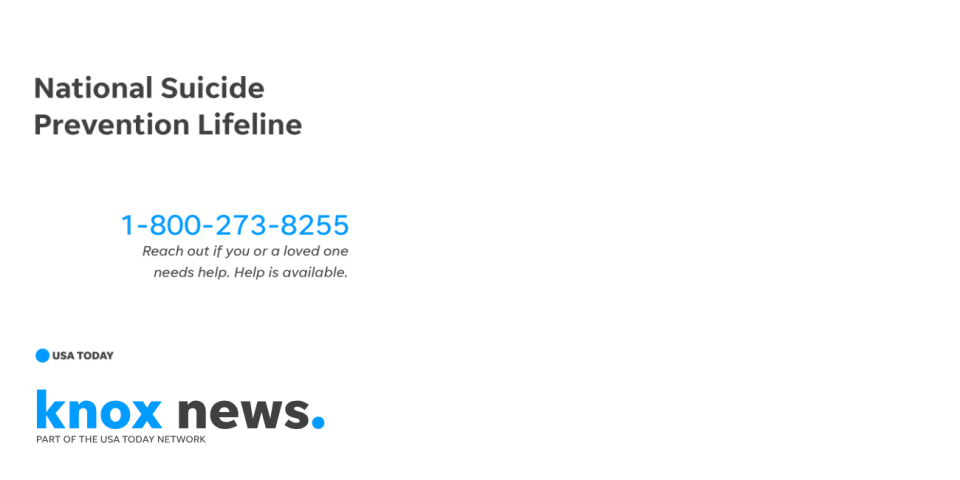Empathy, community are weapons against 'deaths of despair' | Opinion
- Oops!Something went wrong.Please try again later.
Editor's note: This commentary explores suicide. If you are at risk, please stop here and contact the National Suicide Prevention Lifeline for support at 1-800-273-8255.
The Associated Press recently reported U.S. life expectancy plummeted in 2021, the biggest two-year decline in a century. Though the report attributes part of the decline to the COVID-19 pandemic, it also indicates chronic diseases, drug overdoses and suicide are other contributors.
According to the Centers for Disease Control and Prevention, the nation’s drug overdose epidemic worsened in 2021 as deaths surpassed 100,000, a 14.9% increase from the year before. Furthermore, CDC officials suggest gains against suicide are being undone, reporting provisional numbers of U.S. suicides increased last year by about 2,000 to 48,000, a 5% increase from 2020 – that’s one death every 11 minutes.
In 2015, two economists, Anne Case and Angus Deaton, first authored a category known as “deaths of despair.” These were deaths due to suicide, overdoses and alcohol liver diseases. Deaton understood despair as a byproduct of a “long-term drip of losing opportunities and losing meaning and structure in life,” with an estimated 75,000 American lives claimed by despair, according to a study by the Well Being Trust.

Constant exposure to pessimism and negativity has become the norm for those keeping up with the news. Research shows that what we see on the news can significantly affect our mental health, especially when it may feel like we’re going from one disaster or crisis to another, with no relief in sight. These recent statistical findings are no exception.
Hear more Tennessee voices:Get the weekly opinion newsletter for insightful and thought-provoking columns.

So it has been refreshing and encouraging to have recently read Sam Quinones’ 2021 book, "The Least of Us: True Tales of America and Hope in the Time of Fentanyl and Meth." "The Least of Us" sheds a positive light amid the sobering statistics related to declining life expectancy and rising tidal forces of despair, including the hopelessness associated with people feeling suicidal.
“I find comfort,” he writes, “that much of what neuroscience has learned about our brain confirms religion’s truths: humans need love, purpose, compassion, patience, forgiveness, and engagement with others. We’re built for simple things – for empathy and community. That is our defense.”
During this month, now is a good time to remember what Quinones observed: we’re built for empathy and community. Suicide prevention is not just about community partnerships working in earnest to promote crisis helplines and the use of mobile crisis services, but it is also about promoting community connectedness and empathy, where people are attuned to listening to one another. Yes, the news and latest statistical trends are sobering and difficult to hear, and they're certainly testing our endurance and resolve.
After traveling the country chronicling the opioid epidemic, Quinones saw people moving in their own ways toward community rejuvenation. As part of Suicide Prevention Month, let us remember that honoring our community connections is both prevention and timely intervention. So when you see and hear the small, daily acts of kindness and compassion surrounding you in your community, take a moment to honor and share them. It just might lift someone’s spirits and give them hope. As Quinones wrote, “Americans’ quiet attempts to recover community through simple acts, guided by the belief − the message of our addiction crisis [and deaths of despair from suicide] to those who would notice – [is] that the least of us lies within us all.”

If you need to talk with someone about feelings of stress, anxiety, depression and other symptoms related to mental health concerns, Ridgeview offers same-day access walk-in clinic hours each weekday. To learn more about same-day access locations and hours, please visit www.ridgeview.com. The Mobile Crisis Team is available 24 hours a day at 1-800-870-5481.
Michael Yates is the director of development at Ridgeview Behavioral Health Services.
Michael Yates is the Director of Development at Ridgeview Behavioral Health Services.
Ridgeview is a private, not for profit community mental health center with locations in Anderson, Campbell, Morgan, Roane, and Scott counties. For more information, please call 1-800-834-4178 or visit our website at www.ridgeview.com.
If you have an emergent need, please do not hesitate to contact our 24-hour crisis line at 1-800-870-5481. Follow Ridgeview on Facebook and YouTube.
This article originally appeared on Knoxville News Sentinel: Opinion: Empathy, community are weapons against 'deaths of despair'

